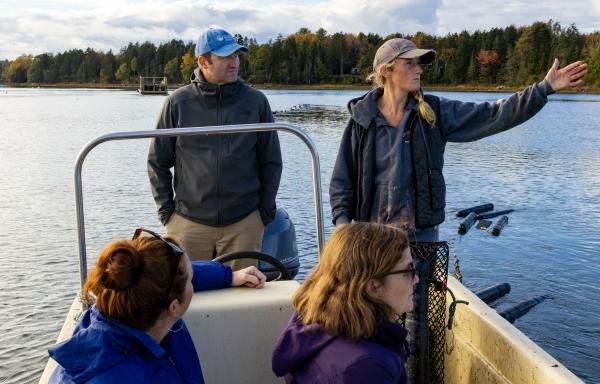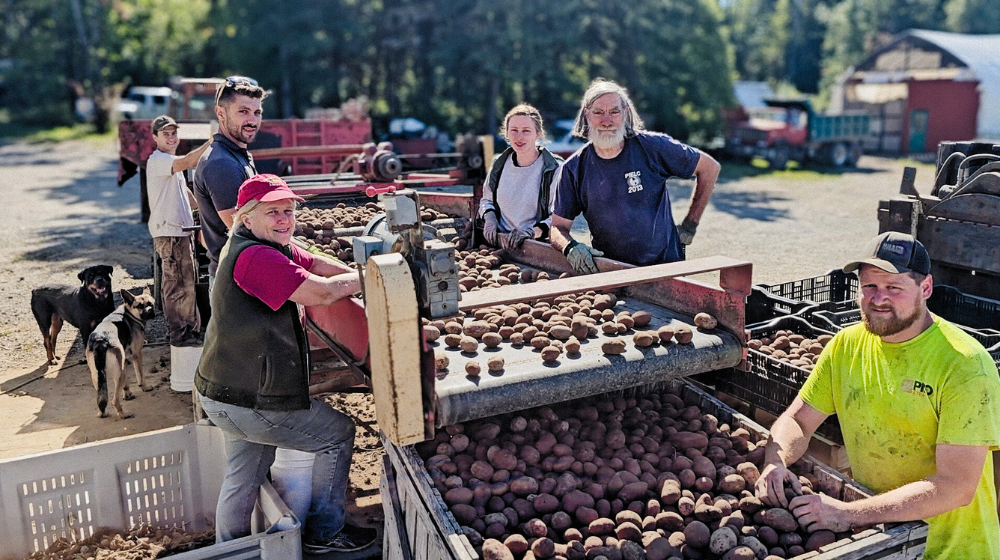
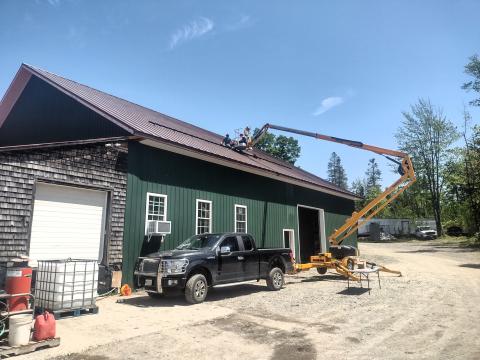
Wood Prairie Family Farm (WPFF) is in the far northern town of Bridgewater, Maine, near the Canadian border. The farm is best known for its certified organic table potatoes and Maine certified seed potatoes (sold locally, online, and from a mail order catalog). Megan and Jim Gerritsen founded the farm in 1976, and it is now owned by their son Caleb and worked by multiple generations of the family.
Like many Maine businesses, the farm has been grappling with rising energy costs. For various reasons, Maine’s electricity prices typically are higher than most places in the country. And with half the state’s electricity generated from natural gas, volatility in that market recently contributed to still higher electric bills. Fortunately, USDA’s Rural Energy for America Program was available to help create a solution for Wood Prairie Farm.
Caleb Gerritsen purchased the business from his parents in 2016. Well known in the farming community, Meg and Jim were early adopters of solar energy, having run the farm off-grid from 1976 through 1994. Near the end of that period, they used a generator to operate potato sorting equipment (used to grade potatoes prior to packaging) but relied on solar energy for the rest of the farm’s energy needs. In 1994 WPFF finally made the switch and connected to the local power company’s electric grid.
By 2023 the farm had used conventional electric supply for nearly thirty years, gradually incorporating energy efficiency strategies like LED lighting and heat pumps (also known as mini splits). Despite these cost-saving measures, by that year the electric bills were high enough to be concerning. By then Maine’s energy regulations had changed to become more solar-friendly. Therefore Caleb began to consider converting to solar energy generation once again, though the initial cost seemed prohibitively expensive.
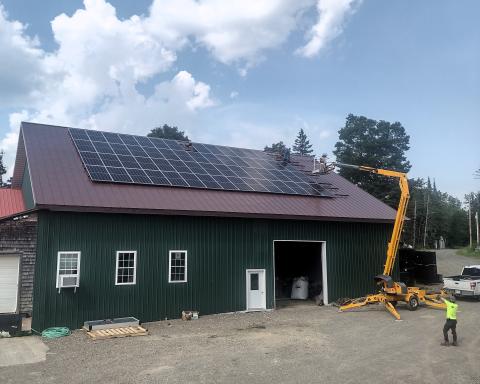
Since Maine’s adoption of Net Energy Billing in 2019, farms and other businesses can generate energy with solar panels, use electricity from the grid as needed, and then “bank” a certain amount of credit in the system when they generate more electricity than they use (such as during peak summer months). This “net metering” system means solar panels can help offset the cost of energy used during periods of low generation. The ability to bank credit for future use increases cost savings for users.
With a new seventy-by-seventy-foot, south-facing warehouse that could readily support a solar array, the Wood Prairie Family Farm already had a good location for photovoltaic panels. Says Meg, “We felt confident about the technology and the tradeoff compared to other kinds of power.” They decided to apply for a REAP grant. In early 2023 the farm secured a $19,770 award, covering 40% of the cost of the panels needed to power the farm and seed business. (REAP does not cover the cost of solar infrastructure to power private homes, so they covered those costs out of pocket.)
By late that summer, installation of the new 29.44-kilowatt system roof-mounted system was complete. At the time, Jim Gerritsen wrote in the farm newsletter, “These solar panels should last thirty years. The breakeven point for our capital investment is six years. So, we expect to have a virtually free source of electricity for 24 years. Seems like a good deal.”
After using the system for more than a year, Meg Gerritsen confirms that the panels generate much of the energy the farm needs, including for the high-energy potato grading equipment the farm operates through the late fall and winter.
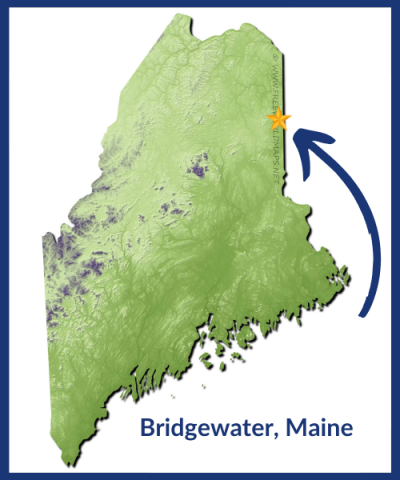
After a thirty-year hiatus from solar energy generation, Wood Prairie Farm is once again relying on energy from the sun. "Producing the electricity our farm uses from our own solar panels makes a lot of sense," says farm owner Caleb. "The approximately seven-year project payback was very appealing, but it was the cost-share help offered by USDA Rural Development that made this major capital expenditure feasible."
About Wood Prairie Family Farm:
Located on Route 1 between the towns of Houlton and Presque Isle, Bridgewater is just a few miles from the US border with Canada. The farm serves local customers and also offers a popular seed catalog (sign up here to receive a catalog by mail) and online sales from its website. Founder Jim Gerritsen also publishes a regular newsletter (sign up here) and has been a prolific public speaker.
Aroostook County is well-known known for its potato production. Providing certified seed potatoes to farms and consumers helps ensure healthy potato crops each season. The Maine Department of Agriculture, Conservation and Forestry tests seed potatoes prior to certification. Wood Prairie Family Farm puts many varieties of organic seed potatoes within easy reach for consumers nationwide.
###
USDA is an equal opportunity provider, employer, and lender.

